Photo: Emmanuel Oyeleke
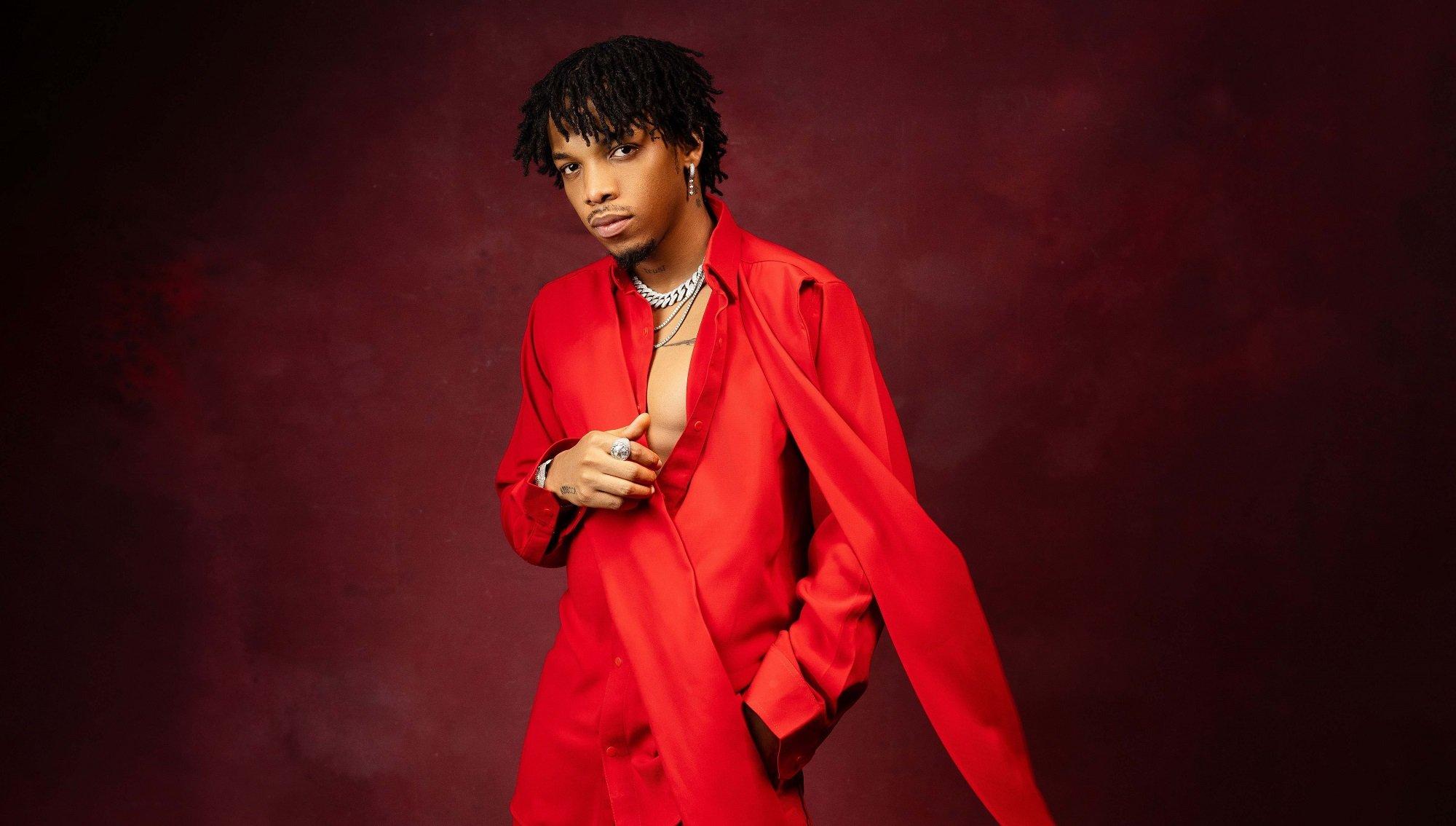
interview
Tekno Talks New Music, Touring America & His "Elden Ring" Obsession
Ahead of his Back Outside tour, which hits the U.S. June 22, Nigerian artist Tekno details the origins of his name and sound, as well as his predictions for the future of African music on a global stage.
It takes a lot of guts to declare yourself the "King of Afro-pop," but Tekno has the hits to back it up.
The Nigerian artist is a staple of the country’s Afrobeats scene, responsible for massive hits such as "Pana" (over 66 million Spotify streams). He’s collaborated with massive artists across the world, starting in 2012 when he enlisted Davido for his breakout single "Holiday." He’s also entered the studio with the likes of Drake and Swae Lee, and Billie Eilish is a professed fan.
Despite this, Tekno hasn’t quite reached the levels of fame that colleagues WizKid and Burna Boy have stateside, but that may be about to change. He’s touring extensively across the U.S. this summer as part of his Back Outside Tour, supporting his 2023 album The More The Better. Tekno also recently inaugurated a label partnership with Mr. Eazi-owned emPawa Africa, defecting from SoundCloud.
The video for his latest single, "Wayo," features the artist as a cab driver going through relationship problems. It's a perfect example of Tekno’s classic pan-African pop, with romantic lyrics and a sweetly melodic sound.
GRAMMY.com caught up with Tekno ahead of his tour, which kicks off June 22 in Columbus, Ohio, to chat about his new music, career goals, and a surprising video game obsession.
You recently released a new single. Tell us a little bit about "Wayo?"
"Wayo" is basically me just tapping into my roots sound, the original pan-African Tekno sound. Our music has morphed and just grown into so many different sounds over the years. And it's very easy to forget that this sound existed before all this music that's playing right now. So I had to deep dive into that. That's basically how I describe "Wayo," I call it a basic Tekno love song. Like it's basically how I started really.
I don’t know if you’re aware that there’s an entire genre of music called "Techno?"
Yes, yes, it’s close to house music.
They’re pretty close. Actually, techno music was invented here in America by Black musicians in Detroit.
Oh, wow. Yeah, people don’t really listen to the techno genre out here yet. They prefer more melodic and groovy music.
So in that case, I did want to ask you about your artist name. Because if people don’t really listen to techno music in Africa, where did your name come from?
I was much younger, and I was looking for a name while I was in church. I’m a Christian, so I was looking for a name that had some form of Christianity to it, even though I knew I wanted to be a secular artist. And then I found this name, "tekno," and it's Hebrew, it means something like "God's people" or "God's word." It's spelt a little bit differently, I can't really remember. But I just liked the meaning of it, and the name stuck with me. And that's how I started calling myself "Tekno."
You've declared yourself the "King of Afro-Pop." Why do you consider yourself to be the king of Afro-pop, and why that instead of the King of Afrobeats or another label like that?
It's more of a personal thing in a way. My favorite artist of all time, forever, will always be Michael Jackson. And Michael Jackson is the King of Pop. So when I named myself the "King of Afro-Pop," it’s because I like Michael Jackson, but it's also because I'm the king of Afro-f—ing-pop. So the name just kind of has a good ring to it.
I want to talk a little bit about partnering with Mr. Eazi; why did you decide to join EmPawa? What do you think the partnership holds for your future, and for the future of music in Africa?
I just love making music so much, that's the goal for me. And I've gone from camp to camp, level to level, and after a while it just starts to wear on you. I don't want to just keep moving from Triple MG to Universal to SoundCloud; I want my own thing that’s a little more permanent. And Eazi is not just my friend, he's my brother. We've been talking about this for years, about doing business together.
There are reasons why it made so much sense for us to come together, but I don't want to share everything. But I like being a priority. If I'm on SoundCloud, I don't want to be on a list of 27 artists where I'm maybe number 18 and my music doesn't get the focus it needs. Like, say I put out a song, and everyone on SoundCloud has gone on holiday. And I'm not aware because I'm Nigerian, I don't know that this day or that day is a holiday in the States. But working with a brother and a team that is home, where we know the system and we understand the culture, it's just way, way better. Because we know ourselves, we know our culture. So working with a brother that has this amazing setup at EmPawa, it just made so much sense.
Read more: Mr. Eazi’s Gallery: How The Afrobeats Star Brought His Long-Awaited Album To Life With African Art
You've collaborated with some American artists before, and Billie Eilish said she is a big fan of yours. Is there anyone in the U.S.-UK ecosystem that you would consider a dream collaboration?
I’d definitely love to work with Billie Eilish. 100 percent. But Drake would always be my favorite collaboration, just because we've been in the studio together. We've talked about it. You know, if I start something I want to see it finished.
He's just an inspiration to the business. Drake, he makes you know that you gotta work, because as big as Drake is he works harder than everybody else. That’s not to say that I wouldn’t love to collaborate with so many other artists whose music I really love.
Are you following the beef between Drake and Kendrick at all?
That was so good, man. I didn't consider that a beef, because when I would watch boxers in the ring fight, let’s say I'm watching Mayweather vs. Pacquiao, it doesn't matter who I'm a fan of. It doesn't matter who wins, I'm entertained.
As a big fan of music, I enjoyed every Drake song and I enjoyed every single Kendrick Lamar song. But if you ask me who I prefer, I would always pick sides and choose. But was I entertained? I definitely was, for sure.
How is working with Americans different from working with Africans? What are the distinctions you find between the two?
Back in Nigeria we don't work in big studios, we work at home. Like, if I want to work with Wizkid I would probably go to his house, or he would come to mine, and we would make music there. But if I'm going to work with Travis Scott, we're gonna go to the studio. If I'm working with Billie Eilish we're gonna go to the studio.
You’re touring North America this year. Do you have any expectations, or anything you’re looking forward to?
I'm just happy to be back outside. I went through this period where I had lost my voice in 2019. And after that happened, and I went through surgery in New York, Corona[virus] happened right after.
And in this whole period, I kind of just stayed away from how much I worked and how much I put out music in the past. I feel like I got used to not being active, so I haven't necessarily been performing for a while. That’s why this tour in the U.S. is called The Back Outside Tour. Because for a long time I haven't been outside, I haven’t been performing, I’ve just been at home.
I like to game [and] I like to make music. I make so much music, but I feel like being home has kind of restricted the amount of music I put out. Because anytime I’m outside, I just get this feeling like I want to conquer the world, I want to do more; I want to put out more.
I want to do more than I've done in the past. So this tour for me is just getting back outside, just getting myself out there and just being on the road heavy. You get lazy if you stay home for too long; we’re habitual creatures. So now I have the mindset that I have to forcefully keep myself out there and just be outside. I'm gonna be touring for three months in the U.S. That's a long time.
You mentioned you’re a gamer. What have you been playing recently?
Recently I've been on "GTA V"; the online is extremely good. Just because it has this plethora of radio stations where while you're gaming you can still bask in this vast playlist. And it’s just fun because you get to play with people around the world. I [also] have this Nigerian community I play with. It's like a way to just be around the people even though I'm in the house, so it's really lovely. And "Call of Duty" is a great one too. But my all time favorite I would say is "Elden Ring." I got locked into Elden Ring for like eight weeks.
Amapiano has really become the dominant sound coming out of Africa in recent years. What do you think will be next?
Tekno sound! They miss it! My sound is like "Game of Thrones," season one to seven.
Not season eight.
Not season eight. I didn’t say that, you said that! [Laughs.]
Basically, I’m not saying amapiano isn’t beautiful music, I’m not saying Nigerians haven’t found a way to evolve it in a way that’s different from the South African type. The South African sound will always be the original one, and every time you record on a South African amapiano beat, you can just tell the difference in the sound. It’s their culture, they own it.
But we [Nigerians] are extremely good at taking your sound and putting our own flavor on it. It’s still your sound, but we play with it. So I feel like it’s been two years of the same [amapiano] and after a while people are gonna want another type of song. I’m not saying Amapiano will go away all of a sudden, it’ll never go away. But people want that pan-African sound. The local rhythm. And Tekno got that.
Learn more: 11 Women Pushing Amapiano To Global Heights: Uncle Waffles, Nkosazana Daughter, & More
Can you go into detail? How do you describe this pan-African sound?
These are songs that always tell a story, it’s never just random. "Wayo" is talking about, "If I invest in my love, would I get a return?" "I no come do wayo" means I'm not trying to play games. I'm serious. If I invest in this love, would I get it back? This thing we call love? Do you truly believe in it? Or you're just with me for the sake of dating somebody?
This type of music always has a deep rooted message in the melodies; it's not just like a regular party thing. There's always a good tale behind the sweet melodies. So like, no, no matter how new school our music goes, this type of sound would always be this type of sound. You're not taking it where. It’s culture.
The video for "Wayo" shows you driving a cab. Did you ever have to hold down a day job like that before you became a successful musician?
Oh my god. I've been a houseboy. I catered for four little kids. They were so stubborn, man, that was the hardest thing I've done in my life. [Laughs.] That would have to be a different interview. I've worked in churches, too. I grew up from a very humble background and I'm grateful to God that I experienced that.
Tems On How 'Born In The Wild' Represents Her Story Of "Survival" & Embracing Every Part Of Herself
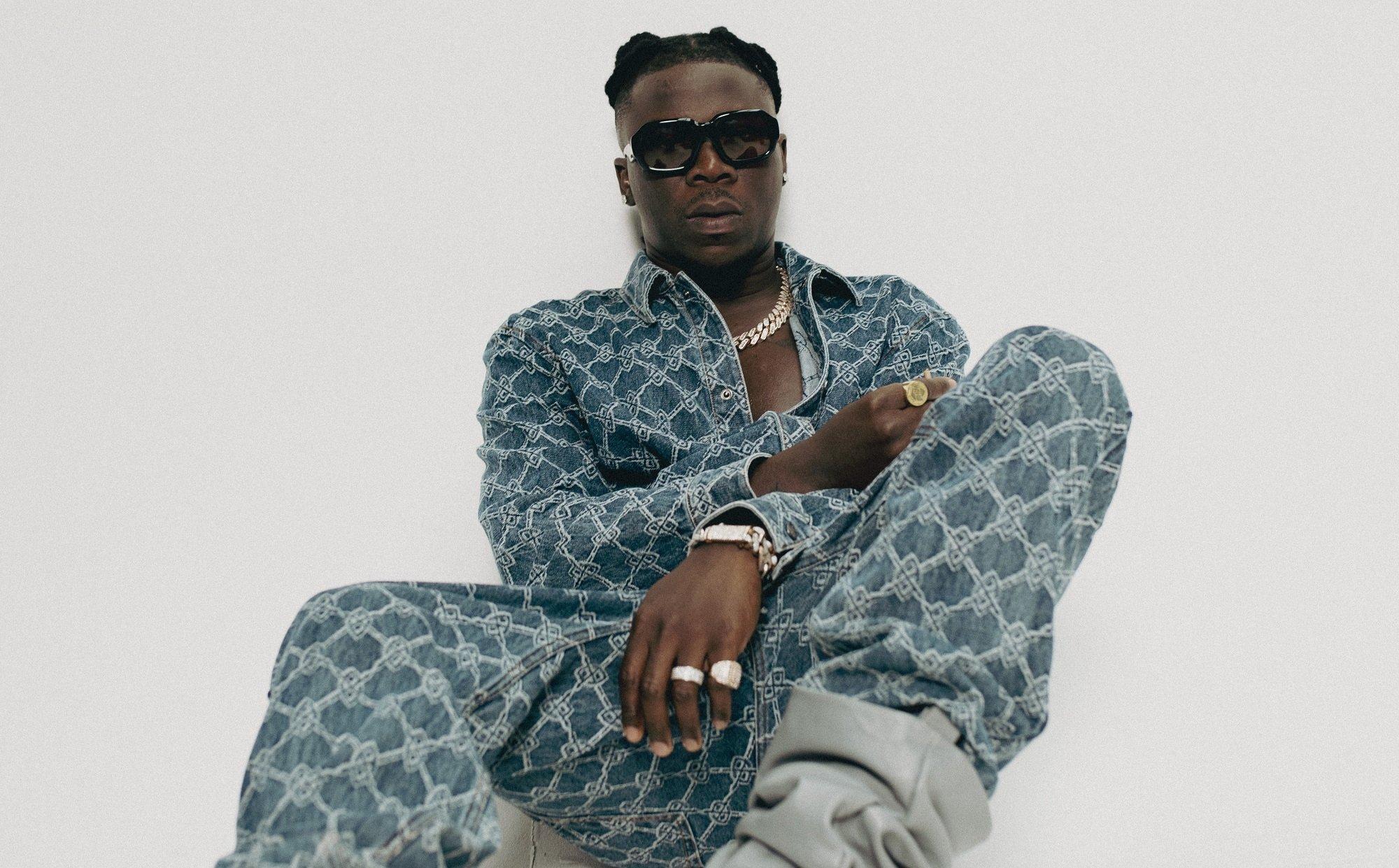
Photo: Ebenezer Ofori Donkor (Kay Studios) for Burniton Music Group
interview
Stonebwoy On His "Inner Quest" To Showcase Authentic Ghanaian Sound
"My vibration is well synced to music of Black origin," the Afro-dancehall artist says of his new album, 'UP & RUNNIN6.' "We are the custodians and we have to continue to bridge the gap by spreading the vibes."
Those perusing the history of Africa's entanglement with Jamaican sound can anticipate frequent mention of Stonebwoy's name. Throughout his career, the Ghanaian Afro-dancehall artist has connected sonic and cultural dots on a scale scarcely rivaled in Ghana’s music history.
Beginning with the release of his vibrant 2012 debut album Grade 1, Stonebwoy has meshed dancehall, reggae, Afropop, and hiplife with ease. Five studio albums, multiple collaborations and a growing number of accolades later, Stonebwoy is back with UP & RUNNIN6. Out Oct. 24, the album aims to turn back time, bringing audiences back to the "basics" of authentic Ghanaian and African sound.
"The nature and the mood of the album is going to give people authentic sounds from all the styles that I represent," the artist tells GRAMMY.com. "I just got drawn to selecting songs that give me that authentic feeling, and I realized that other people would love it too."
Stonebwoy's authenticity and lasting dedication to amplifying Africa through music has resonated with a global audience, as well as a number of major acts. His unmatched vitality has led to collaborations with fellow Afro-dancehall mainstays such as General Pype, Cynthia Morgan, and Patoranking, as well as Jamaican legends Beenie Man, Shaggy, and Sizzla. The release of Anloga Junction in 2020 marked a critical shift in Stonebwoy's career, projecting his story and signature sound to the world (while tying in international features such as Keri Hilson, Nasty C, Alicaì Harley, and Diamond Platnumz and Morgan Heritage). By 2023's The 5th Dimension, Stonebwoy was moving beyond his archetypal Afro-dancehall approach in favor of Afropop, amapiano, and Afro-R&B.
After much sonic exploration, UP & RUNNIN6 is a welcome return to roots that still feels as timely as ever. The album’s early singles reveal its vast range: "Pray for Me" is a reflective number featuring Wycelf Jean, while the buoyant "JEJEREJE" takes listeners to new heights.
GRAMMY.com spoke with Stonebwoy about connecting Africa and the Caribbean through music, Ghana’s #StopGalamseyNow protests, and the road to UP & RUNNIN6.
This interview has been edited for clarity.
Congrats on "JEJEREJE"! It’s been very well received both in Ghana and abroad. What tone did you want the track to set before the album officially drops?
I think the feeling has been that Ghanaians would love to hear some authentic Ghanaian style coupled up with today's sound. I realized that the people needed some nostalgic feeling, an authentic feeling. And we can use "JEJEREJE" as a very typical example of "African sound." This is what the world wants to listen to right now, especially Africans globally.
Tell us more about how you want to chanel authenticity through UP & RUNNIN6.
To cut a very long story short, this whole album is actually supposed to complement The 5th Dimension, which was more present and futuristic. UP & RUNNIN6 is also very present, but it taps into the original African sounds that a lot of people have been missing. I decided to tap into that energy to bring back some originality and remind us of the times before.
You’ve been in the game for over a decade now, and you’ve worked with a myriad of artists across five projects and countless singles. What do you want to convey with UP & RUNNIN6 that you feel you haven't yet shared with your audience?
I see life as a continuous process. From [my debut album in] 2012, there’s definitely going to be a build-up, so UP & RUNNIN6 is [a combination of] everything up till today. I’m still running with it. But I am making sure that I am creating music with a lot more reasoning in terms of satisfaction, and with an intense sankofa [a Twi word and phrase that connotes learning from the past to inform the future] kind of mentality.
For me, my vibration is well synced to music of Black origin. Therefore, I have the liberty to latch on to whatever vibration that is inspiring the world and inspiring me too. I merge both to stay true to my roots. That is what UP & RUNNIN6 is about for me.
Let’s talk about the feature selection on this album, because it seems very particular. In addition to the big names like Wyclef, Spice, and Duncan Mighty, you heavily represent rising talents from across the Caribbean and Africa such as Kaylan Arnold, Blvck H3ro, and Larruso. Were you intentional about platforming emerging voices on this project?
I’m just paying attention to an inner quest of moving in the UP & RUNNIN6 direction, without necessarily looking at the technicalities. I am moving with a vibrational understanding, but I'm just realizing now what meaning I'm making on a technical level.
I have two songs that have more than two features: "Geography" and "Overlord." These are the two songs that speak to my Caribbean Afro dance style, and they also open a platform for other people to get up and run.
I'm happy because Blvck H3ro just hit me up recently and said, "Yo bro, thanks for putting me on the album." I'm like, "Why not?" Kaylan is on the album too, and you know Chi Chi Ching has also been around for some time. But the variety and the uniqueness that they all carry is incredible.
A consistent thread throughout your project — and your entire career — has been your dedication to connecting Ghana and Africa with Jamaica and the Caribbean. How do you think African artists can use their platforms and their music to foster greater interconnectivity with the diaspora?
I think it's just by continuing what we’ve been doing already. I think Africa has always been very receptive of its people from the diaspora. I have been very intentional about it ever since I [learned] that there are other Black people spread across [the globe]. And as soon as I realized that they all must have a link, or must have come from Africa, I had a lot of interest in wanting to capture that wide range in my creativity.
That was a turning point for me, where I realized that I cannot be doing music while only considering Ghana or people on the African continent. I must capture the globe. My music is not only for Africans at home, but also for Africans abroad and in the diaspora. This has been my inspiration from the get-go. That's why I have always pushed the style that I do.
I'm grateful that I am well-accepted in the Jamaican and Caribbean society in terms of my representation of Black people globally. I think over the years, I've been able to develop my craft so that it appeals to the diaspora. That's one of the ways that I will continue to — and other artists can continue to — bridge the gap. We are the custodians and we have to continue to bridge the gap by spreading the vibes.
A significant part of your work also includes uplifting Africa and advocating for its liberation through music. As you’re well aware, there were recently protests in Ghana against galamsey, or illegal gold mining, a phenomenon which is progressively contaminating the country’s bodies of water. This is an issue you’ve spoken out against in the past with your 2021 single "Greedy Men." What is the role of the artist in advocating for the liberation of their fellow citizens?
Whatever happens in Ghana or Nigeria or Kenya or South Africa — so long as it's happening on the continent of Africa — Africans can relate. And so long as something is happening on the continent, then the world can relate.
Illegal mining is not the only big headache that is hitting Ghana, you know. And I believe that there are surely forms of illegal mining of different natural mineral resources across Africa. For instance, Congo has a lot going on in that regard as well, where foreign companies are killing people while they dig for minerals.
There is a tendency to underrate Ghana's contributions to contemporary African music as we tend to focus on the music scenes that are most validated by the West. But what are some key elements we’re missing about Ghana's role in the spread of African music and the development of its larger soundscape?
Ghana cannot be stripped of its contributions in the overall establishment of African sound and its globalization. Ghana can never be written off. Ghana will forever remain that very important contributor to the explosion, globalization, and the creation of African sound.
But Ghana has the responsibility of amplifying its own contributions. Because if you do not amplify your own contributions, you can't expect Nigeria to amplify Ghana's contributions as much as they amplify their own contributions. Who is actually going to invest their resources — be it human, be it capital — to amplify somebody else’s contributions? The only responsibility we owe each other is just a level of honesty.
A very critical example is today’s amapiano in Nigeria. Someone who doesn’t know wouldn’t be able to speak to the fact that it is amapiano that influenced the addition of certain elements in today’s Afrobeats.
Learn more: Amapiano's Decade-Long Journey To Global Dominance: The Sound Redefining Club Music Worldwide
That’s why I'm proud to go anywhere and mention Ghana. And to read and study and know that E.T. Mensah is the founding father of highlife music, these are the legendary bands, this is where they went to, and this is how big they were. The contributions that our forefathers and predecessors made are left in books to be read and in history journals to be dug out. Or else, someone will just say what they think, and that will become what we know today.
If you see African music as a building, don’t forget that the foundation must be strong for it to get to where it is today. In as much as the roofing can be seen clearly, you cannot easily see the foundation that is in the soil. So it is up to us to be honest enough. The guy that’s on the roof should say, "That’s my brother down there that's holding me up right now." We just have to be selfless enough and honest enough. I don’t think there’s too much wahala [trouble] in that regard.
Our differences should be the advantages that we have, rather than them becoming the weaknesses that we use against each other. So Ghana plays some of the most significant moments that have changed the landscape forever. That might not be sitting on top as the roof to be seen, but it is sitting right in the soil as a foundation to remain forever.
You’ve recently signed a new deal with Warner's ADA Worldwide. What are your hopes for the new partnership?
My target for this partnership is to continue to send my music across the globe the right way, through the right channels.
One of the things that we lack in our systems in Africa is monetization, and being able to gather all the necessary valuables that come with music as a commercial commodity. I think it's important to partner with certain institutions that are very well established globally to be able to see the end results of our music. And also, to propel our artistry to the next level.
Watch Stonebwoy Rise To The Top In This Bold Performance Of "Manodzi" | Global Spin
It goes without saying you’re incredibly accomplished. Over the past decade, you’ve indelibly shaped Ghanaian and African music. How would you summarize the legacy that you’ve left, and what do you look towards for the future?
While you are running the race, you know that you have to hit the end mark, but it is only after you hit it that you can sit back and analyze how your race went. Using that as a scenario, I trust that there's more mileage for me to hit. But so far, so great. There's a lot that has gone on, that is going on, and I'm grateful for that.
It just gives me energy to keep going because I do not feel that I have finished. There are things that can still be done, in terms of shows, still taking over, still pushing the numbers.
For the future, I see myself having an established system that can continue to harness and develop more musicians, equipping them with access that they didn’t have before. The best example I can use is Jay-Z — who’s an artist and an entrepreneur and is still very active.
We have to build back a better system in order to continue to produce musicians. This is what I see on a large scale when it comes to the music aspect of my life.
More News About African Music
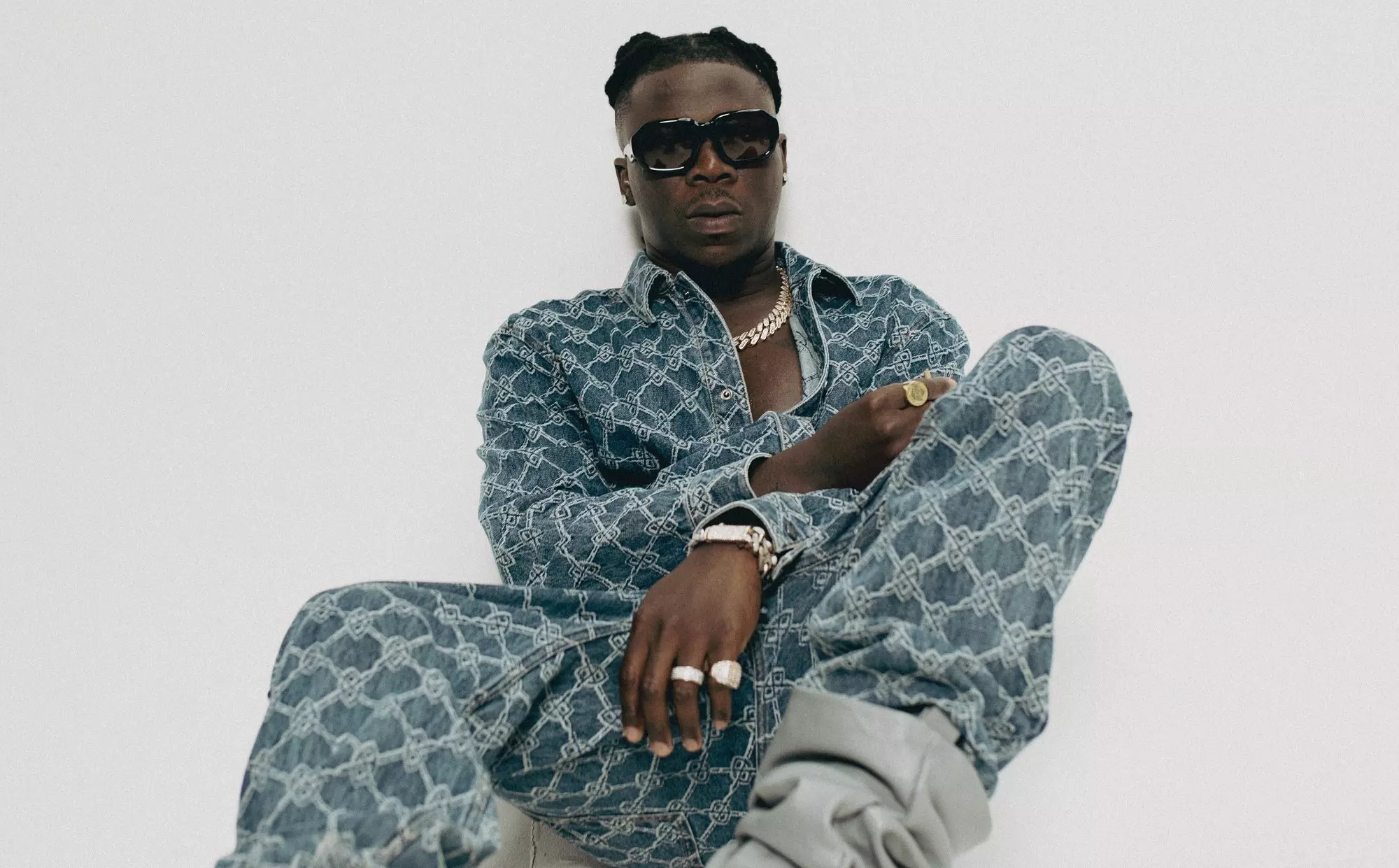
Stonebwoy On His "Inner Quest" To Showcase Authentic Ghanaian Sound

Mic Monsta Performs "Local Lokito" | Global Spin
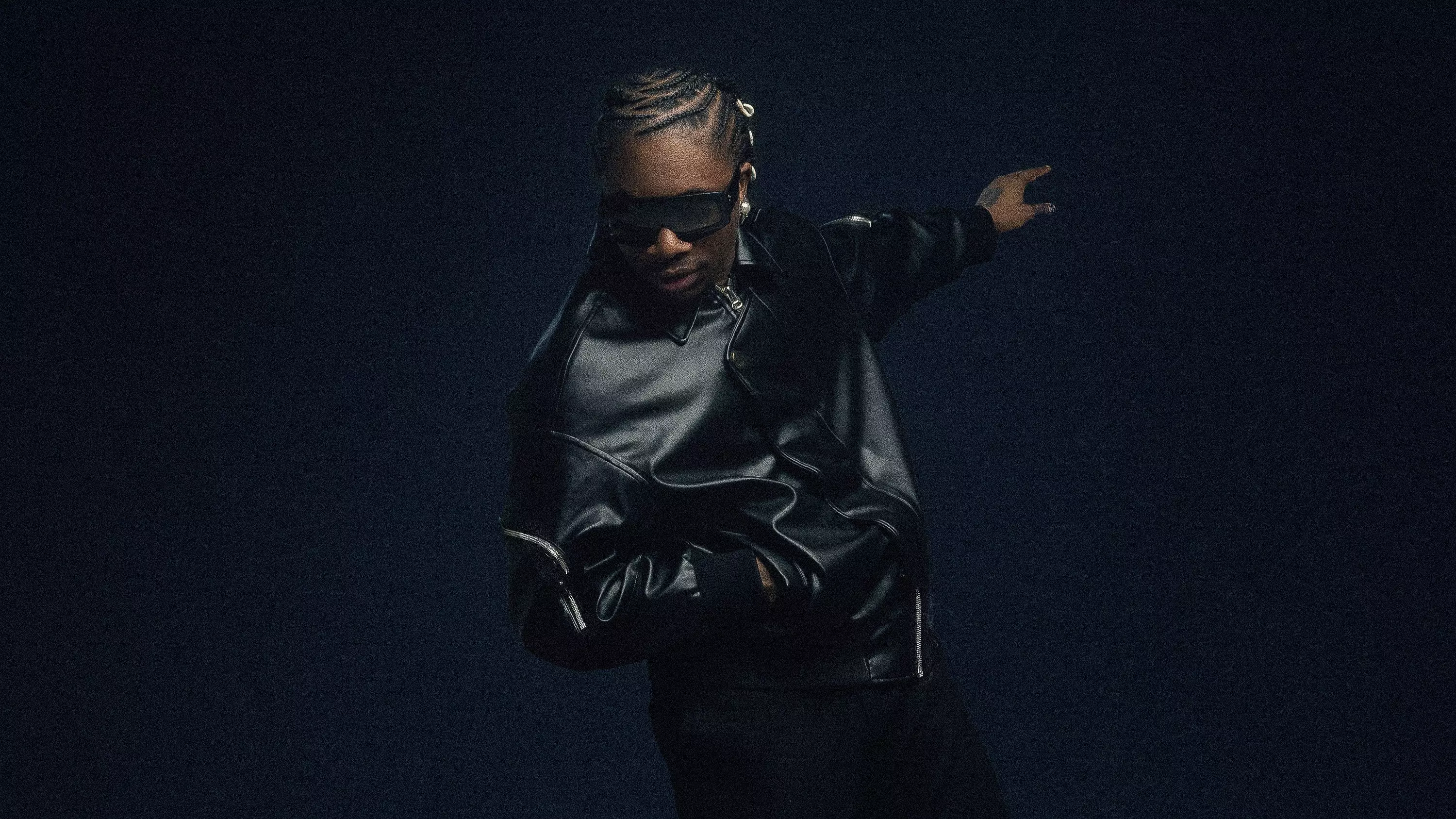
Rising Afrobeats Star Oxlade Is Ready To Go Global On 'Oxlade From Africa'
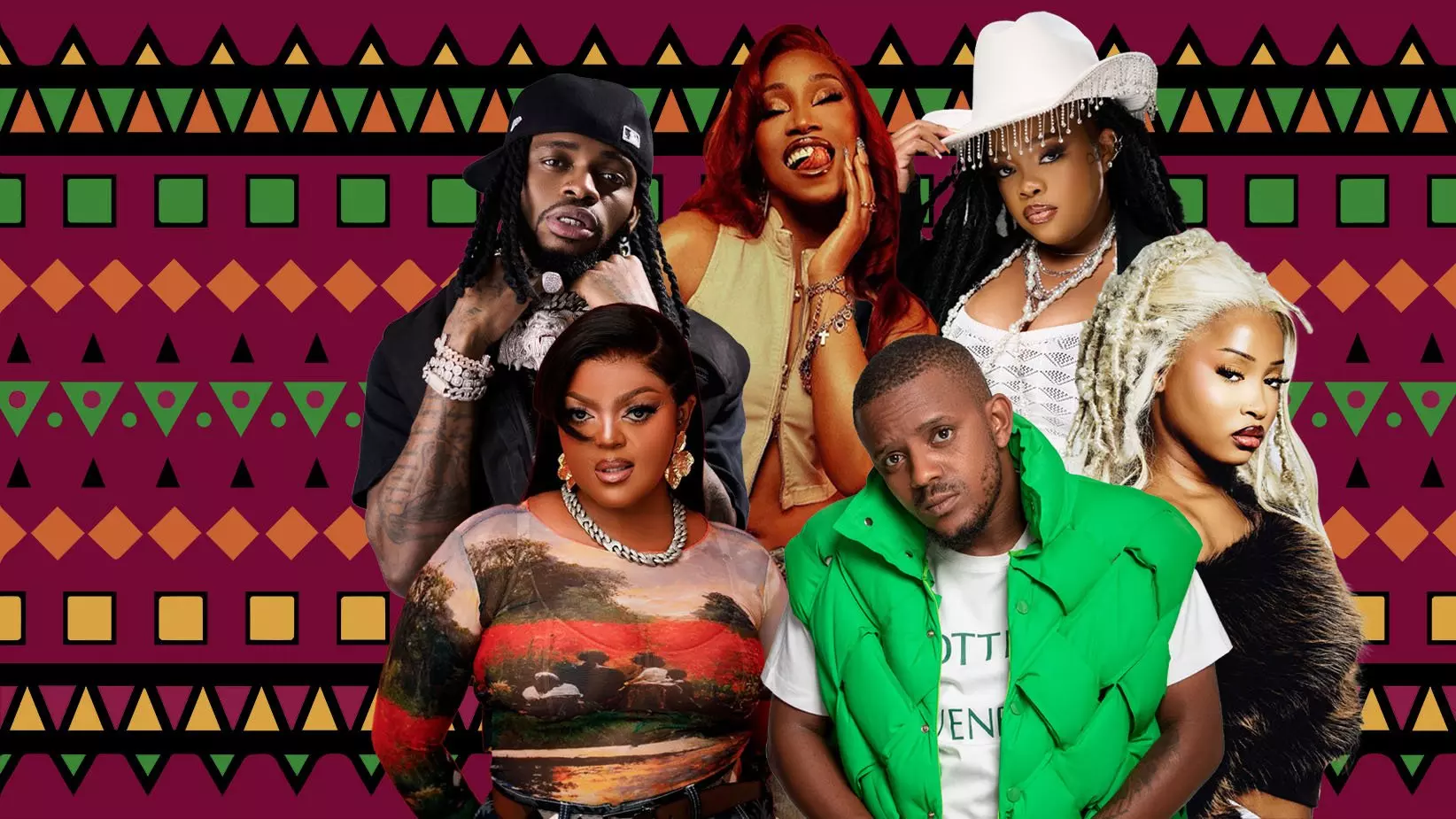
Amapiano's Decade-Long Journey To Global Dominance: The Sound Redefining Club Music Worldwide
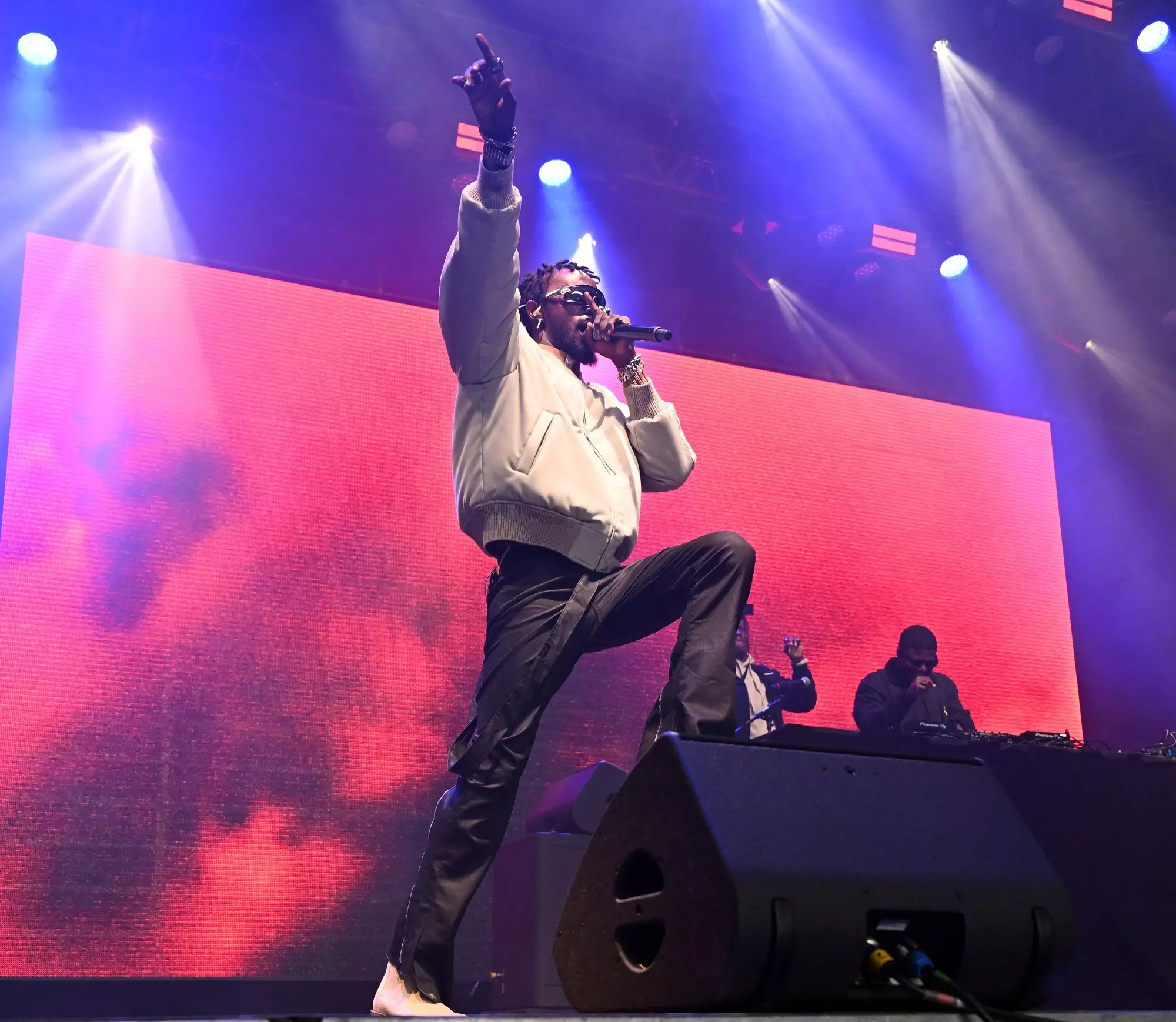
10 Artists Essential To Ghanaian Hiplife: Reggie Rockstone, Sarkodie, Mzbel & More
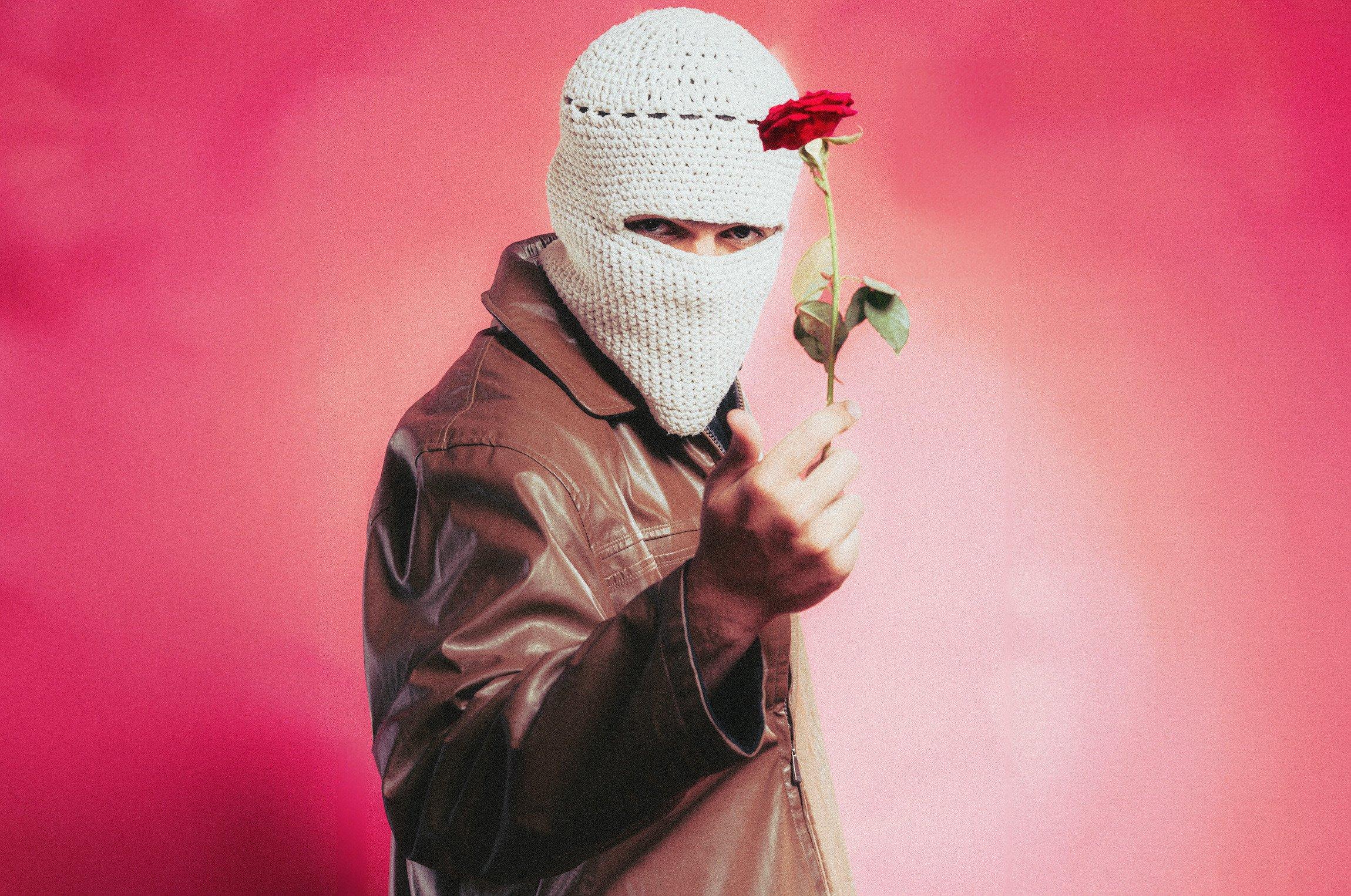
Photo: Mostafa Adry
interview
Get To Know TUL8TE, The Rising Arab Pop Star Bringing Egyptian Culture To The World
Since his debut with 2023's 'MAGHOOL,' TUL8TE has quickly become the newest face of Gen Z Arab Pop. In his first-ever interview, learn more about his influences and writing process, as well as why he's "honored" to be representing his country.
"HABEEBY LEH" may be TUL8TE's global breakthrough single, but it's also a very important part of who he is. Both the song and its music video pay tribute to the viral masked artist's home country of Egypt, from several sonic nods to Egyptian pop icon Amr Diab to a visual filmed on the streets of Cairo. But the popularity of "HABEEBY LEH" has rapidly expanded beyond Egypt's borders.
In the two months since the music video launched on YouTube, "HABEEBY LEH" has racked up over 12 million views as of press time. The song — a track on TUL8TE's second album, Cocktail Ghena'y — also has over 10 million streams on Spotify, over 8 million streams on regional platform Anghami, and has been used in over 61,000 videos on TikTok.
For an independent artist in the Middle East and North Africa performing in Arabic, those are eye-popping numbers. What's even more remarkable is that all of this happened organically, without a single dollar spent on marketing or promotion for the Cocktail Ghena'y's release — a global success for regional talent rarely seen without support from a major label.
While Arab artists in diaspora communities, such as Palestinian-Chilean singer Elyanna and Moroccan pop star DYSTINCT, have helped bring Arabic music to the global forefront in recent years, TUL8TE is doing so in a way his peers aren't. Based in Egypt, his homegrown approach brings the language and the music straight from the Middle East and North Africa directly, organically tapping into the cultural zeitgeist and building a grassroots foundation on his own.
Of course, a major part of his appeal is also thanks to his anonymity. TUL8TE has become known for his wearing a white knit mask, only adding to the intrigue around the Egyptian sensation. But in TUL8TE's eyes, his physical identity isn't important to his artistry.
"It doesn't matter who the performer is, what matters is how the listener interprets the music and lyricism. It has resonated with people of all cultures, and that is what matters," TUL8TE emphasizes to GRAMMY.com. "Music is for the people."
Since debuting in May 2023 with his first EP, MAGHOOL, the singer's global appeal has increased with each release. While his first album, TESH SHABAB, saw success in the Middle East, it was Cocktail Ghena'y that cemented him as the new face of Gen Z Arab pop.
The project emphasized his musical versatility even more than its predecessors; the first half of Cocktail Ghena'y features elements of flamenco and Arab rhythms, while the second half weaves trap- and R&B-inspired beats with melancholic melodies to help his silky voice shine. As the LP shows, TUL8TE's modern take on Arabic music makes his sound as relatable to people in his community as it is to listeners around the world — which is exactly why he's on the path to global superstardom.
In his first official interview, TUL8TE spoke with GRAMMY.com about the global success of Cocktail Ghena'y, his artistic vision, and why he'll always stay true to his roots.
Your album Cocktail Ghena'y has achieved massive global success. How does it feel to see your music reach listeners beyond Egypt and even beyond the Middle East and North Africa?
It's incredibly rewarding to see the music I created in my bedroom resonate with people around the world. Knowing that listeners from different cultures and backgrounds connect with my work is both humbling and creatively energizing. It pushes me to keep evolving and making music with even more passion.
Within the emerging Arabic scene, we've seen diaspora Arab artists gain global success. What does it mean to see you, as a homegrown artist from the region, achieve such a growing fanbase at a rapid pace—all organically? Did you ever imagine this kind of global attention?
Honestly, I never imagined my music would receive this level of global attention. I was simply focused on enjoying the creative process, staying true to myself, and hopefully inspiring others, especially younger generations. To see this response has been an incredible blessing, not just for me but for those who have supported me along the way.
Throughout your album, you vulnerably explore the rollercoaster of emotions when going through love and loss. What is your writing process like, and how did you decide to candidly open up in this way on the album?
My writing process is deeply personal, and I strive for authenticity in every track. Love and loss are universal experiences, and I wanted to express those emotional highs and lows in a raw and honest way. I believe that vulnerability allows for a deeper connection with listeners, and that was my goal—to create something people can genuinely relate to.
Your album is divided into two distinct sounds: one that is reminiscent of '90s Amr Diab with a cultural blend of Arab instruments and Spanish flamenco, and the other more experimental with elements of trap and R&B akin to Travis Scott. Can you share a little bit about why the album is broken up this way and how you decided to take this approach?
I've always been drawn to blending genres that reflect my own diverse musical influences. The album naturally evolved into a mix of sounds—on one hand, there's the nostalgic nod to artists like Amr Diab who shaped my upbringing, and on the other, there's a more experimental side that reflects my passion for modern genres like flamenco, bossa nova, and psychedelic rock, et cetera. It wasn't a calculated decision, but rather an organic reflection of what I enjoy and consider good music.
Speaking of Amr Diab, it's clear that you have an affinity with his music, and we've seen you pay homage to him in your music videos. Can you tell me a bit about the impact he has had on you and your music?
Amr Diab is a legendary artist and a profound inspiration for me. He embodies the power of self-belief and shows how it can lead to extraordinary achievements. His innovative spirit and willingness to experiment with different genres have paved the way for younger generations, including myself.
With this massive global audience, do you feel a responsibility to represent the new wave of Egyptian and Arab artists to the world and to be the face of this scene?
I'm honored to be part of a movement that's showcasing the richness of our culture to a global audience. But I try not to get too caught up in the idea of being a "representative." My focus is on staying authentic to my own creative journey and letting the music speak for itself. That's where I find the most joy and fulfillment.
Who are some of the people that you credit for getting you into music and getting your career going?
I owe a lot to the support of friends and family, but I have to specifically mention Lege-Cy and Hady Moamer. Their guidance in the early stages of my career opened my eyes to different ways of creating music, and that foundation has been instrumental in shaping who I am as an artist today.
Are you planning to go on tour and perform your music in front of a live audience?
Absolutely! Performing live has always been a dream of mine, and I'm fully committed to making that happen. There's something magical about sharing that energy with a live audience.
Do you feel like you've made it? What's next for you?
The concept of "making it" is fluid. There's always more to learn, more to create, and more to accomplish, so I wouldn't say I've made it just yet. My focus is on continuing to grow, staying true to what I love, and seeing where that takes me next.
Latest News & Exclusive Videos
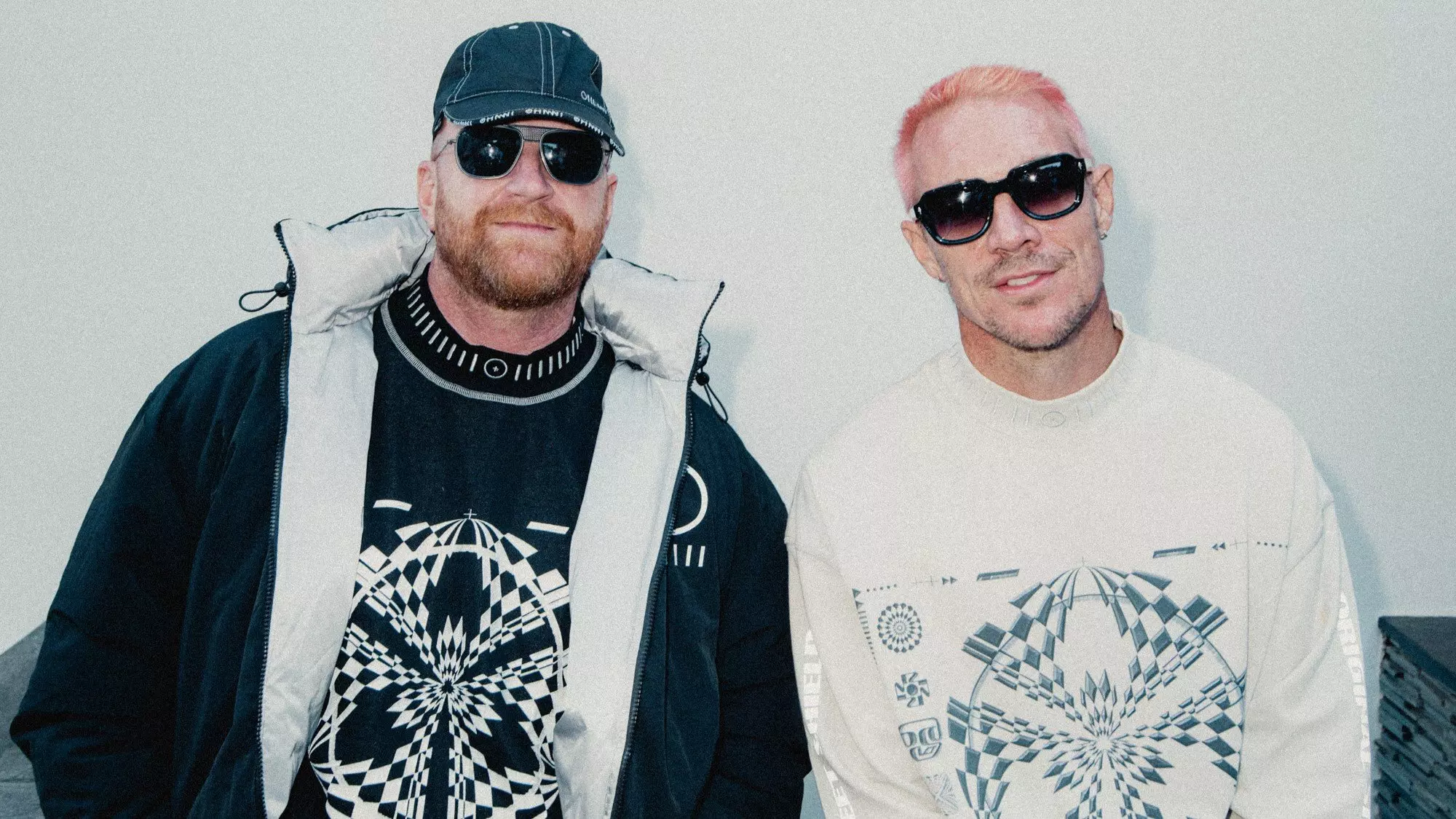
How Major Lazer's 'Guns Don't Kill People…Lazers Do' Brought Dancehall To The Global Dance Floor

YOASOBI Performs "Idol" | Global Spin
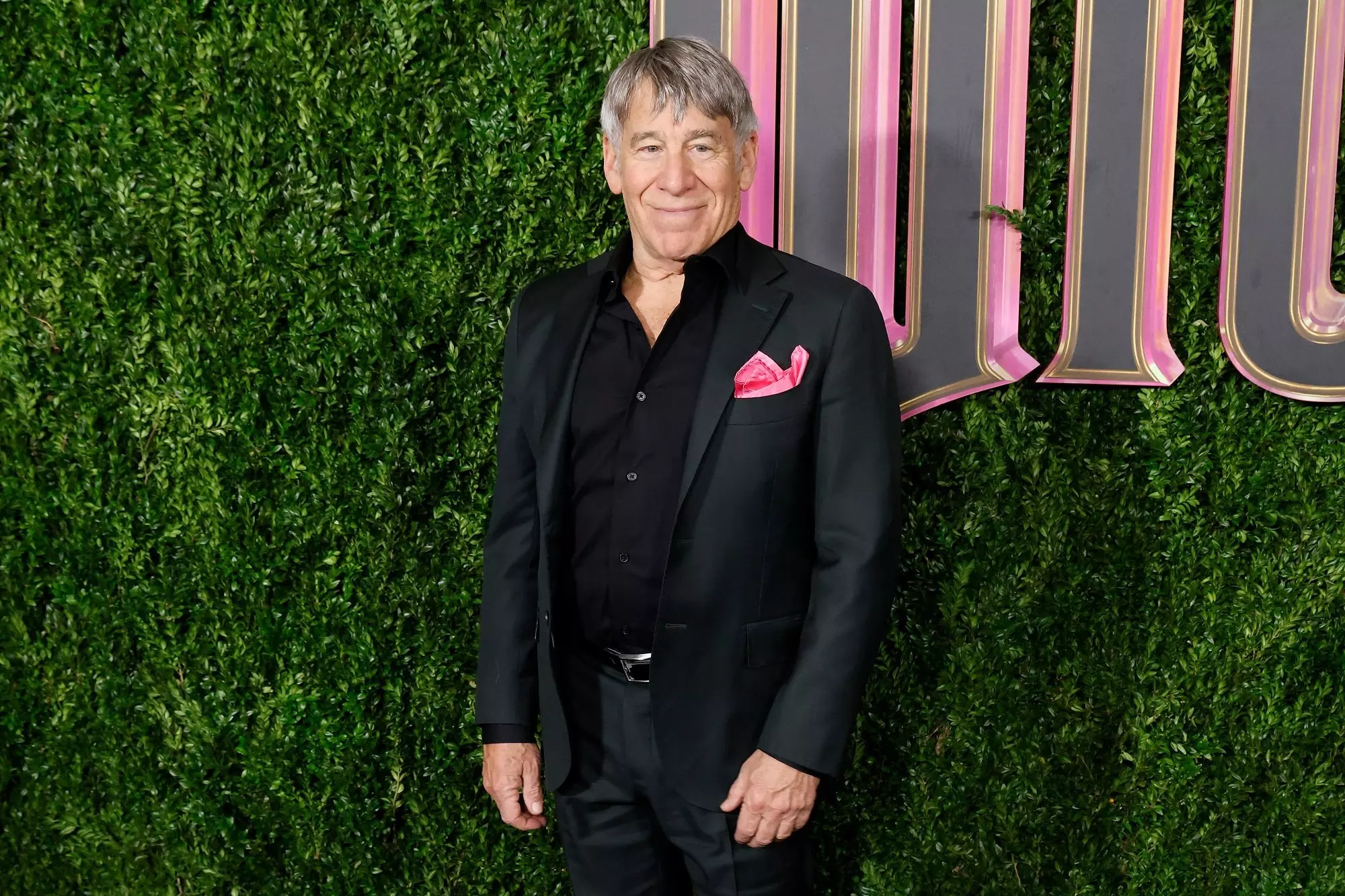
'Wicked' Composer Stephen Schwartz Details His Journey Down The Yellow Brick Road
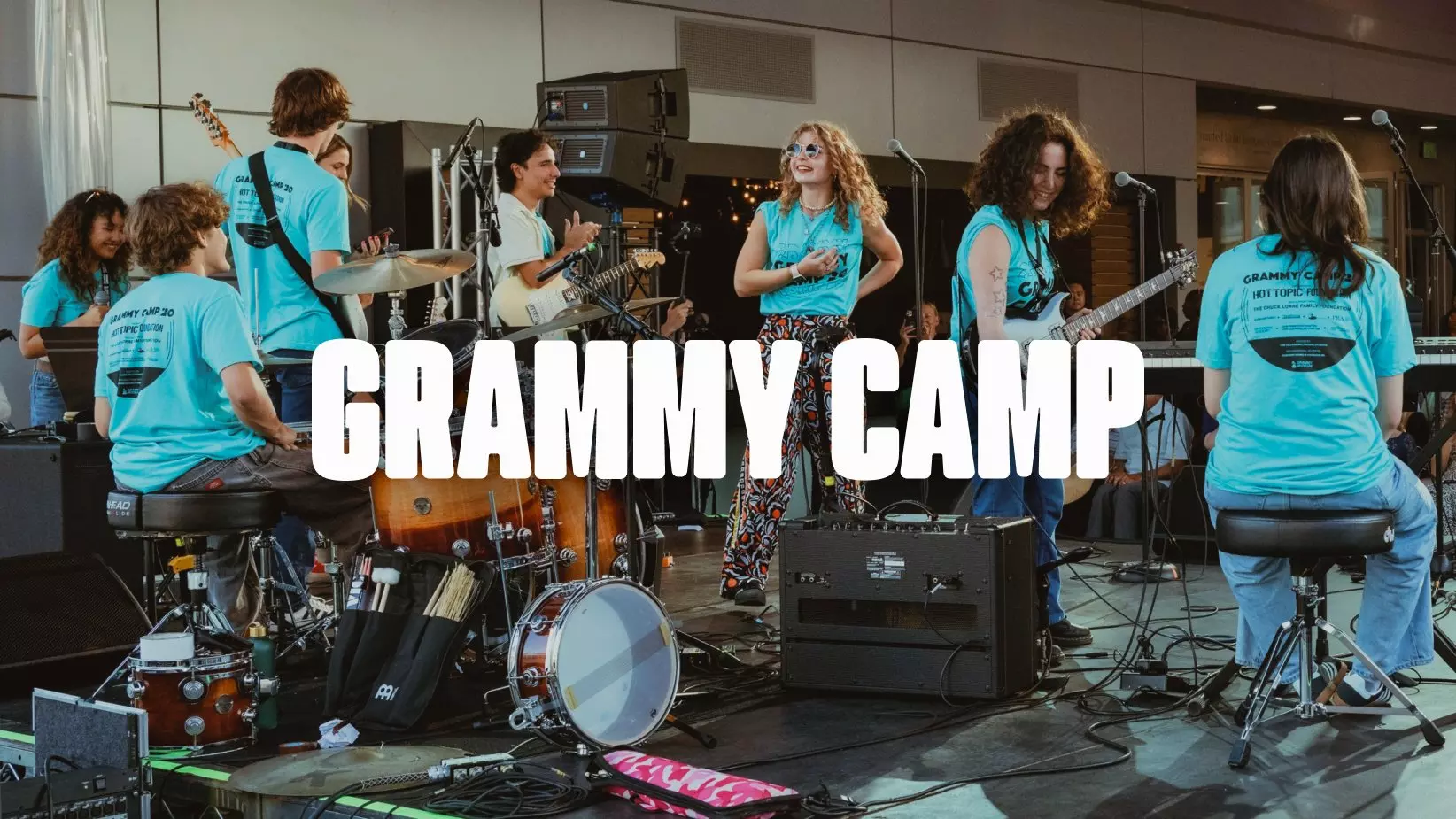
GRAMMY Museum Expands GRAMMY Camp To New York & Miami For Summer 2025
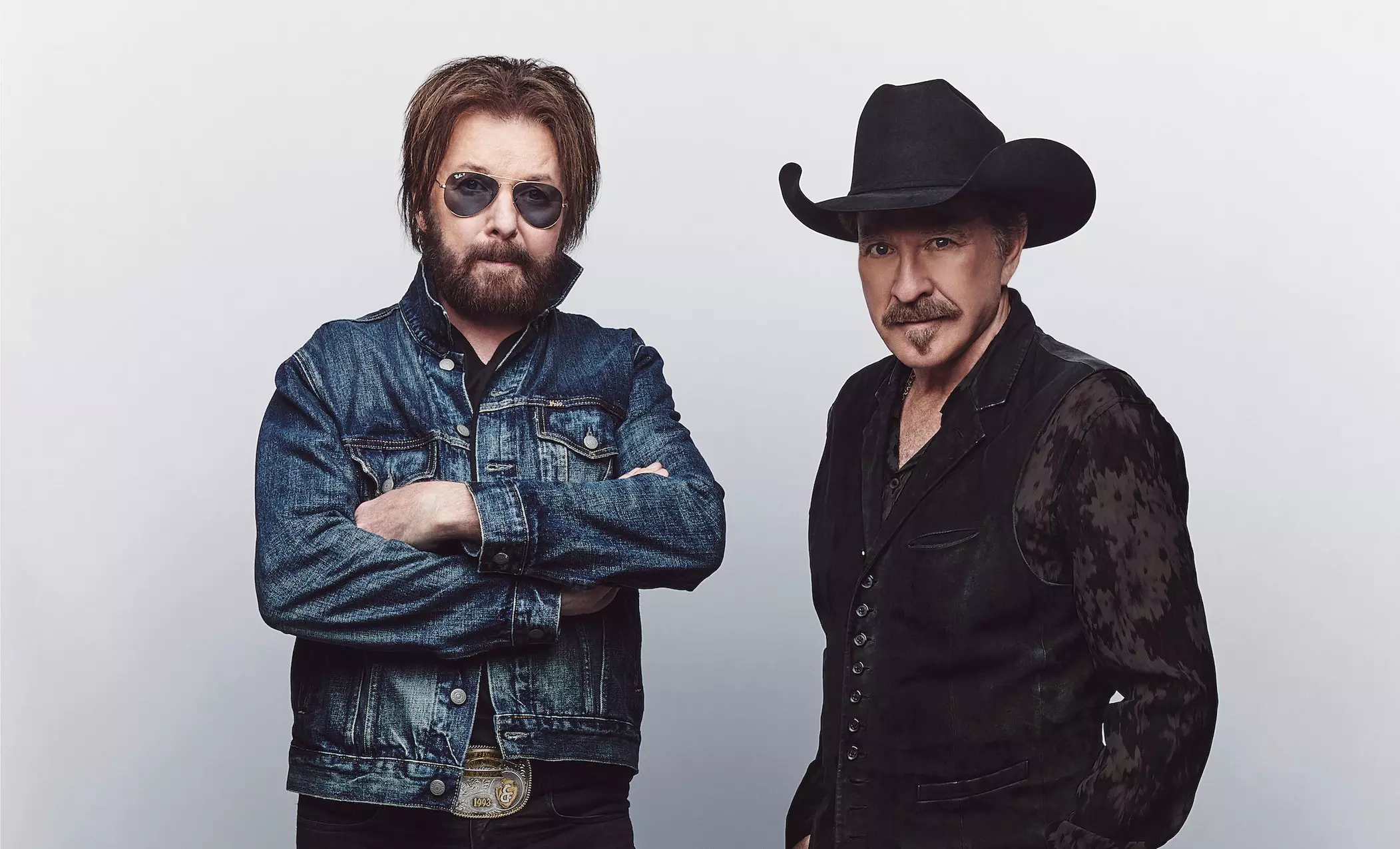
Living Legends: Brooks & Dunn On How 'Reboot II' Is A Continuation Of "Winging It From Day One"
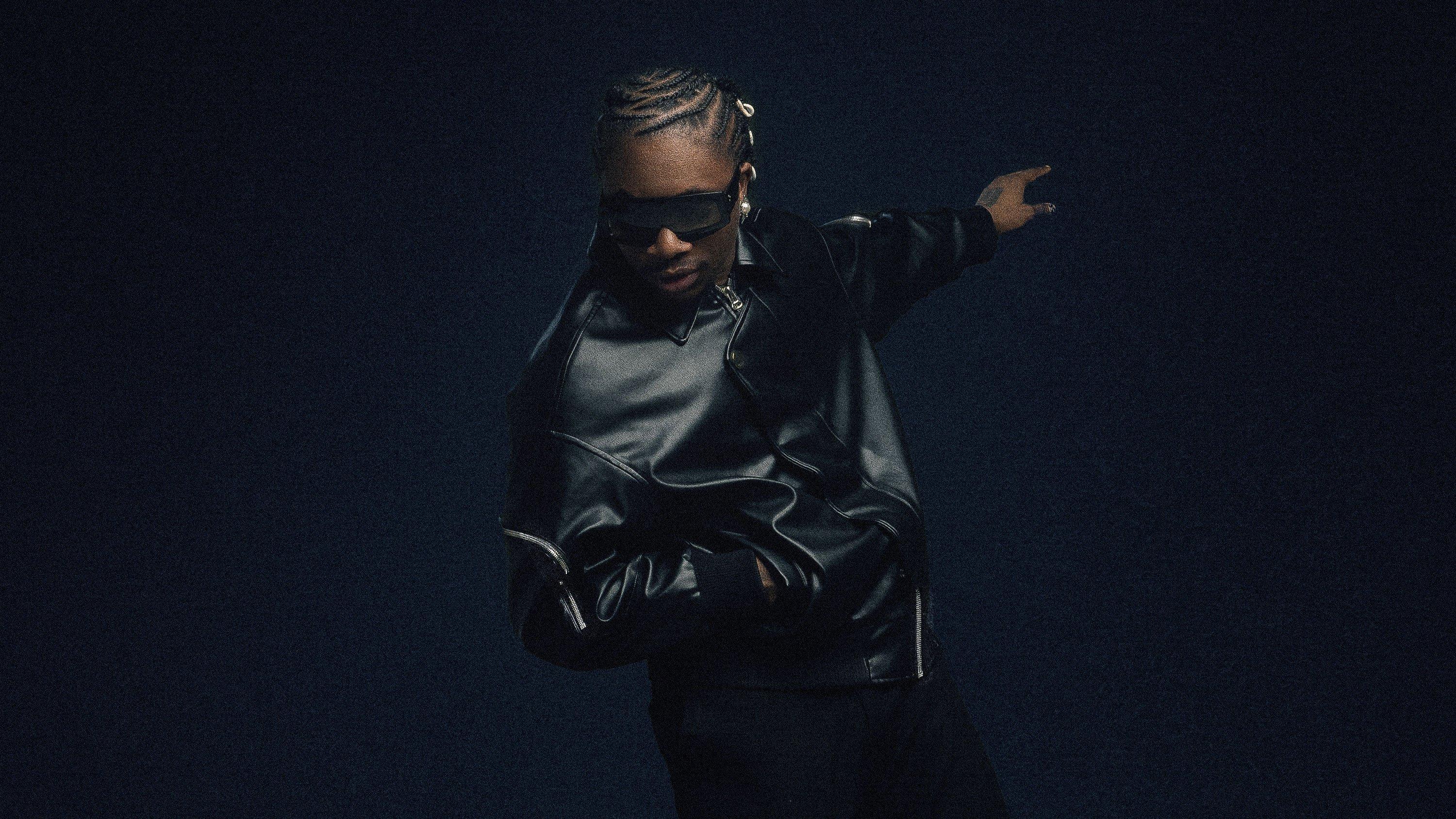
Photo: Courtesy of the artist
interview
Rising Afrobeats Star Oxlade Is Ready To Go Global On 'Oxlade From Africa'
The Nigerian singer discusses his new project, his global ambitions, and the unity of Afrobeats as an identity.
If there’s one thing Nigerian singer Oxlade believes in, it’s the power of Afrobeats as a world-conquering musical movement.
“Afrobeat is beyond the music. Afrobeats is who we are,” he says. “Afrobeats is the trends, the fashion, what we eat. Afrobeats is an identity.”
The Lagos native, born Ikuforiji Olaitan Abdulrahman, has good reason to believe in Afrobeats, considering he’s one of its fastest-rising stars. After a youth marked by tragedy and struggle, in particular the death of his mother at 3 years old, he left university to pursue a musical career in the late 2010s.
Oxlade quickly rose to prominence when his strong falsetto vocals earned him cosigns from Drake and opening performance slots for Davido and WizKid. His EP Oxygene, inspired by his own struggles with asthma, gained acclaim with the smash hit “Away” in 2020. An even bigger success followed with “Ku Lo Sa” in 2022; his performance of the song on A Colors Show, the influential YouTube series where artists give one-take live renditions of their music, currently has over 100 million views.
Now, Oxlade is readying his biggest act yet. He dropped his debut album Oxlade From Africa on September 20 ahead of a North American tour starting October 2 in Winnipeg. The album’s vision of what Afrobeats can be is quite inclusive, with the artist bringing aboard UK rapper Dave, French-speaking Congolese star Fally Ipupa, and Jamaican dancehall icon Popcaan as collaborators. Ugandan music legend turned political dissident Bobi Wine provides a spirited introduction on the album’s opening track.
GRAMMY.com caught up with Oxlade via Zoom ahead of the album’s release to talk about the creative process behind the record, his global ambitions, and how Afrobeats serves as a cultural force on the world stage.
How long have you been making music and when did you decide to start doing it professionally?
I started singing even before I started to talk. So it's more like a muscle memory thing for me. I was born into a musical family. I lost my mom when I was three, and I moved to my grandma's. My grandma happened to be a deaconess in a church, and she enrolled me in the choir. Ever since then, I've been singing. It has always been a part of me, even though I never knew I was gonna use it to impact lives. Even though I never knew I was gonna be Oxlade, I started singing even before I found myself.
Judging by the Barcelona FC jacket you’re wearing, you're clearly a football fan. Do you support any specific teams or players?
I'm a Barca fan. My favorite football player of all time is Neymar. He made me love football again. His game is artistic, not the normal athletic, direct style.
Before I knew the origin of your artist name, I originally thought that you had named yourself after (former Liverpool player) Alexander Oxlade Chamberlain.
Yeah, I get that a lot. Actually, I got it from my grandpa. He lost his best friend the same day I was born, and so he gave me the name in his honor.
**The album is called Oxlade from Africa. Why is it from Africa, not from Nigeria or from Lagos?**
As much of a Nigerian that I am, I'm equally an African. And Africa is the mother continent of every African country and race, including the likes of Jamaica and most of the Black people you see anywhere on Earth. So I felt like self awareness and identity is one of the most underrated strengths that any African has. I'm on the path of finding myself, but also I'm on the quest of telling people more about myself and where I come from through my music.
Something I encounter a lot when speaking with Afrobeats artists is the idea of Pan Africanism, this desire to sort of unite the whole continent through sound. And it seems like you want to unite sort of everyone of any Black experience.
I feel like we need more unity in Africa. God really blessed our race. And I feel the only missing piece is more love. If we let go of xenophobia, tribalism and personal greed, I feel like Africa could be the most blessed, flourishing continent to ever exist.
Is that why you wanted to work with someone like Bobi Wine, who has become a political leader in his country?
Yeah. I mean, it was just a way to remind the African youth that even though we are artists, we're vessels, and we are also destined to use our platforms and our voices to wake people up. The future is now, the future is tomorrow, the future has to start from now, and having Bobi Wine on there was just like a trigger to remind people of what the struggle of being an African youth feels like, and against all odds, how much we have to triumph. Because when our parents, or when the people that came before us are gone, we're going to be the ones that have to handle the fate of Africa.
Was there a particular moment earlier on in your career where you realized you wanted to become a musician full time? What was that moment like?
I just knew I was never going to work a nine to five (laughs). Like, in as much as I could work for someone, I want to work on my own terms. I want to work while creating my own future, my own art. I didn't know I was going to be this big or go this deep into music, but I knew I was going to be a star. I started off as a dancer, and then I started acting, and then music just came along. Music had always been there, but I really didn't know what exact talent I was going to use to actually push my stardom. But I feel like music eventually won, because I think that's the most natural thing that comes to me.
Is there a co-sign from another artist, or anyone really, that excited you more than anything other? Who's the most important supporter?
Every single human being that streams my music is my biggest co-sign. I would say Drake, but I mean, a woman somewhere in Congo taking out her hard earned money to stream my music is my biggest supporter, or the woman somewhere in the South of France using my songs to serenade her husband for their wedding anniversary. I feel like every single person that ever invested in my music should be regarded as my biggest co-sign ever.
What’s the biggest career milestone of yours so far? What is something that you are really proud to have accomplished
My biggest career milestone is the fact that I never stopped, that I'm still here, that I'm still trying to achieve my goals, regardless of all the obstacles, regardless of where I come from. Trust me, being a Nigerian alone is an obstacle, because we’re making it against all odds. We're doing this in hardship, in poverty, and we're still excelling. So being able to achieve my dream alone is my biggest milestone.
Were there any particular obstacles in the making of this album that you had to surpass?
Obstacles have to happen for you to value every success that you achieve, so from the paperwork down to me having to go re-record the entire album in London, down to selection problems, down to me having to let go of some personal, sentimental songs that didn’t fit the theme of the album, down to having sleepless nights, always having to push the album date, thousands of Zoom meetings – it's a long list. That's why I'm so grateful that this album exists.
What would you say the theme of the album is overall?
Royalty, African excellence, and Black is the new cool. Being Black is a flex. Afrobeat is beyond the music. Afrobeats is who we are. Afrobeats is a Twitter banter. Afrobeats is the trends, the fashion, what we eat. Afrobeats is an identity. So I understand when people try to carve a niche for themselves, but what I don't like is when it’s at the expense of Afrobeats, discrediting what we're fighting for, which is an identity. You wouldn't see Kendrick Lamar, no matter how many triple or quadruple entendres he might put on a record, try to downplay hip hop, because that's the identity they're trying to represent. So I feel like this album is just an embodiment of all of that, authenticity, originality.
**In terms of what you put into the lyrical content or the sound of the album, how do you think that identity manifests on Oxlade from Africa?**
I sang about my struggle. I sang about love, I sang about gratitude. I sang about prophesying greatness into one's life. Everything I am in real life was transferred into melodies, and that is why I feel like that is authentic enough to be labeled Oxlade from Africa and an African album, because I'm African, and I'm literally singing my experiences into music.
And those personal songs that you had to leave off, why exactly weren’t they right for this project? And are you going to try and put them out at some point?
Definitely, they're gonna fit into the project they were made for. Some of them were probably extremely pop records, and they defied the theme and sound that I was trying to create for this album. Some of them could be techno music. Some of them could be different types of genres that didn't fit the theme of the album, not because the songs were not good enough. So definitely, those songs are gonna find an album that benefits them.
Who would you love to collaborate with the most?
Dead or alive? Michael Jackson is a no brainer, because I feel like he's the greatest to ever do it. He made Black boys mainstream. I don't know if you understand what that means, like he’s the first Black pop artist to be televised on MTV. You know, all those types of milestones made boys like us, at home in Africa, believe that anything is possible. Another person I would like to work with is probably Drake. Him, Kendrick, Lauryn Hill, and the list goes on and on. There's Chronixx from Jamaica. I just love spiritual, ethereal musicians
What's one thing that people might not know about you?
I'm asthmatic. People don't know that. That's why I dropped my first ever project, an EP called Oxygene. People didn't realize it was me raising awareness for asthma patients around the world, to tell them they’re not alone and that music would be the air you need to heal you from asthma. I'm also a cat guy, I have two cats.
Does your asthma ever give you difficulties when performing?
Oddly enough it never has. I feel like the pressure and the intensity that comes with climbing the stage turns all sickness into hype. Like you're about to get onstage, nothing is messing you.
More News About African Music

Stonebwoy On His "Inner Quest" To Showcase Authentic Ghanaian Sound

Mic Monsta Performs "Local Lokito" | Global Spin

Rising Afrobeats Star Oxlade Is Ready To Go Global On 'Oxlade From Africa'

Amapiano's Decade-Long Journey To Global Dominance: The Sound Redefining Club Music Worldwide

10 Artists Essential To Ghanaian Hiplife: Reggie Rockstone, Sarkodie, Mzbel & More
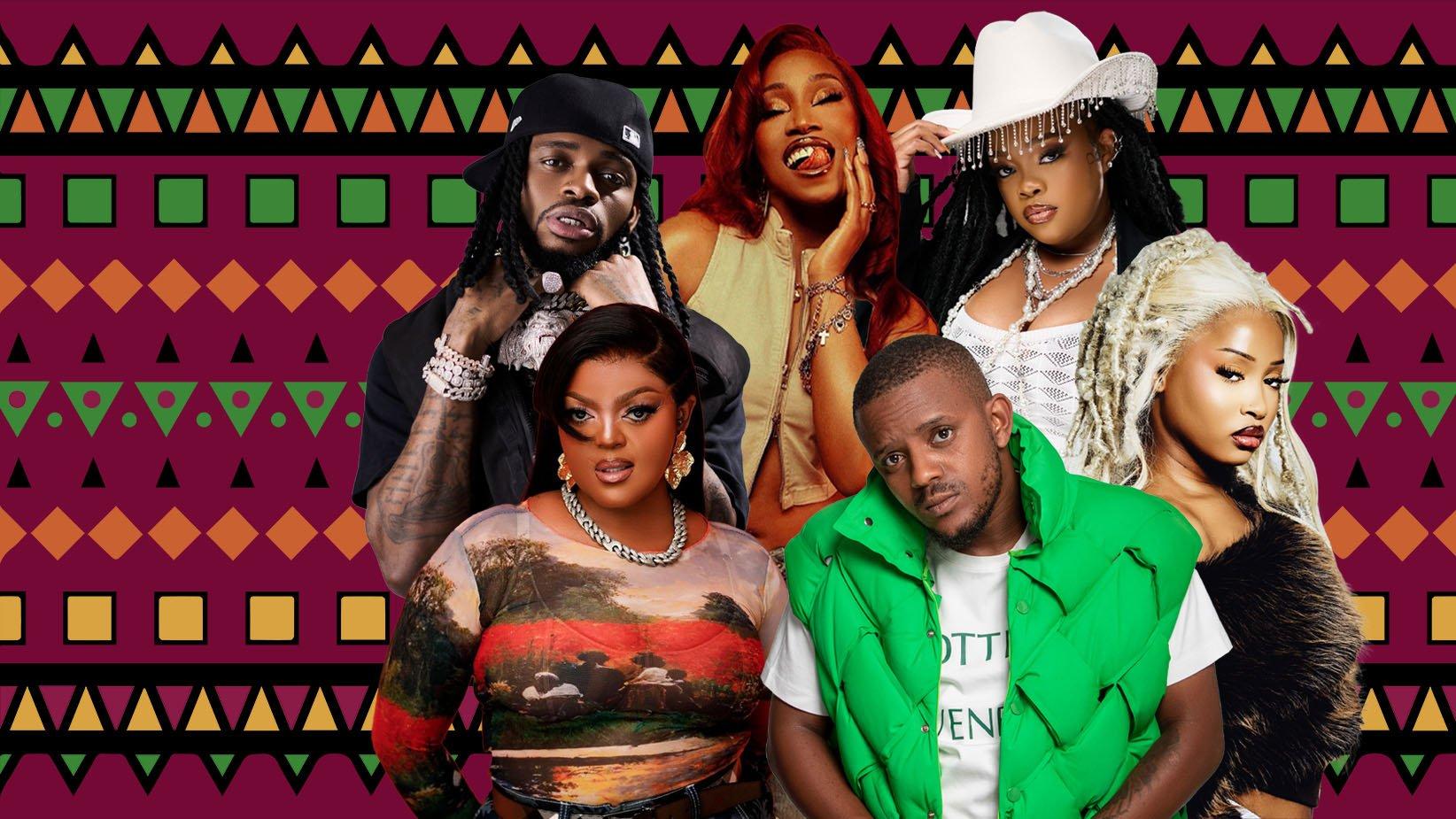
Photos: Blaq; Jibril Jallow; Malwandla Rikhotso; Mishaal Gangaram; Malwandla Rikhotso; Minenhle Nene
feature
Amapiano's Decade-Long Journey To Global Dominance: The Sound Redefining Club Music Worldwide
Amapiano may have started in the townships of South Africa, but it didn’t stay there. Amapiano artists Kabza De Small, Uncle Waffles, DBN Gogo, and others detail how the genre went from the underground to the GRAMMY stage and beyond.
At nightclubs in Tokyo, New York and beyond, pulsing through the speakers at major European music festivals, and even in Hollywood blockbusters, one sound has been steadily taking over: amapiano.
The South African genre, with a blend of deep house, jazz, lounge and local musical styles, has captivated the world, generating billions of views on social media and sparking a cultural phenomenon that shows no signs of slowing down. On TikTok alone, the #Amapiano hashtag has amassed over 10 billion views, a testament to its global reach and popularity.
Characterized by velvety, hypnotic grooves, piano melodies, deep basslines, and smooth percussive rhythms, amapiano was born in the townships of Gauteng Province — particularly in cities like Pretoria and Johannesburg — in the mid-2010s. Slower than the average club track, amapiano songs often live between 110 and 120 bpm. The genre's rise to global dominance is a testament to the power of grassroots creativity and digital connectivity.
Fast-forward to February 2024, and South African singer Tyla took home the inaugural golden gramophone for Best African Music Performance at the 2024 GRAMMYs. Beyond Music's Biggest Night, Tyla's amapiano-infused Afropop hit "Water" topped the Billboard U.S. Afrobeats Songs and Hip-Hop/R&B charts, and became the first African song to enter the Billboard Hot 100 since 1968. The "Water" dance challenge on TikTok — created by Tyla’s choreographer, Litchi — also widely pushed the song.
Tyla isn't alone in pushing the genre's popularity. Interest in amapiano has been propelled by social media and streaming platforms. According to Spotify data, the genre garnered its first 100 million streams in 2020; by mid-2024 the platform reported 855 million streams of amapiano songs. Between 2014 and 2024, there has been a 153 percent growth in international exposure to the genre.
While Tyla’s win at the GRAMMYs and in wider culture affirms the genre’s solid footing in the global music scene, amapiano’s popularity is the result of a decade-long journey.
The Birth Of A Movement
While the birth of amapiano is generally pegged to 2014, there’s no specific event or single person that can be credited with its uprising. Amapiano's origins were humble but innovative, distinguished by its inclusivity and collaboration — factors that are likely the result of the fluidity with which the genre emerged.
Young, aspiring producers in South African townships used affordable personal computers and free music production software to blend globally-influenced sounds such as deep house and jazz with kwaito — a distinctly South African genre. True to the collaborative nature of the genre's origins, an amapiano song can have six to 10 collaborators (sometimes more); the result is a blend of carefully curated voices, notes, and themes that captivates listeners far beyond its birthplace.
Kabza De Small began his career in 2009 and broke through on the continent with his 2016 album Avenue Sounds. Today, he's hailed as the "King of Amapiano" by media, fans and industry peers. "Amapiano is considered a raw, rough sound. To see people globally dancing and participating in TikTok challenges is thrilling," he tells GRAMMY.com, reflecting on amapiano's unique sound and present-day virality.
This rawness is largely reflected in the genre’s production, which often strips down tracks to their bare essentials. Repetitive beats and bass often contribute to amapiano's "rough" aspect, making it feel more direct and visceral. Soulful melodies float over that heavy bass and percussion, and catchy vocal hooks balance the raw beats underneath.
Amapiano’s collaborative nature has been crucial to its development. Kabza De Small shouts out pioneering producer, singer and songwriter, Mdu aka TRP. "Not a lot of people know that he basically founded the log drum sound that is so essential and distinct" to amapiano, De Small says. In amapiano, the "log drum" isn't an actual instrument but a distinct, synthesized bass sound that captures the deep, resonant tones of a traditional log drum. This signature sound has become a cornerstone of amapiano's unique and captivating vibe.
From Local Phenomenon To National Breakthrough
Cultural authenticity has been a key factor in the sound's appeal. It's not just a genre of music, but a representation of South African identity and expression. The name itself came from the Zulu language, which is the word for "pianos."
By 2016, amapiano was still finding its ground, with local DJs and producers refining its signature elements.
Learn more: 11 Women Pushing Amapiano To Global Heights: Uncle Waffles, Nkosazana Daughter, & More
A significant milestone was achieved in 2017 when De Mogul SA's "Oe Batla Kae" became one of the first amapiano tracks to achieve commercial success. The tune got the artist booked for local shows, effectively paving the way for other amapiano songs. In 2018, "Umshove" by Kabza De Small feat. Leehleza showcased a more refined amapiano sound, highlighting elements that "Oe Batla Kae" lacked — particularly the log drum.
2019 was a defining year for amapiano, as songs like "Labantwana Ama Uber" by Semi Tee (feat. Kammu Dee and Miano), "Vula Vala" by DJ Maphorisa and Kabza De Small (feat. Nokwazi and Vigro Deep), and "Kokota Piano" by Kaygee Daking and Bizizi further left the underground. Amapiano could be heard on television and radio, in clubs, and across social media, effectively making the above songs anthems throughout South Africa.
As the sound began to spread nationally, it carried with it the stories, language, and rhythms of its birthplace, creating a strong connection with listeners across the country.
The Global Takeover
As the world grappled with COVID-related lockdowns in 2020 and 2021, danceable amapiano songs such as DBN Gogo and Musa Keys' "Possible," Focalistic's "Ke Star" feat. Vigro Deep, and "Emcimbini" by Kabza De Small and others provided a much-needed escape. With more time spent online during the pandemic, the genre was simultaneously making its way into social media globally, with a variety of TikTok dance challenges bringing additional listeners to the genre.
International collaborations further catapulted amapiano onto the world stage. In 2022, Nigerian crooner CKay collaborated with Davido and Focalistic on "Watawi", a notably huge Afropiano song. On YouTube, the songs performed quite well, with "Woza" by South African artists Mr JazziQ, Kabza De Small and Lady Du featuring Boohle hitting 21 million views. "Mang’Dakiwe" by DJ Obza featuring Leon Lee hit 17 million views. The remix, done in collaboration with Tanzanian bongo artist Harmonize garnered 29 million views.
By 2023, the amapiano sound was now mature and definitive, with all of its key elements together. Over the next few years, amapiano sounds would be incorporated with genres from other countries to great effect.
Zimbabwean amapiano vocalist Sha Sha's "Tender Love" feat. DJ Maphorisa and Kabza De Small garnered more than 15 million views on YouTube. The popular release showcased her impeccable vocal range and denoted that amapiano was now being done by artists beyond South Africa. For her efforts, Sha Sha took home the Viewer’s Choice Best New International Act award at the 2020 BET Awards. Her win on an international platform signaled amapiano's arrival on the global music scene and opened doors for more artists to gain international exposure.
Simultaneously, awards for and documentation of amapiano within South Africa pushed the movement even further. In 2021, the South Africa Amapiano Music Awards were launched and exclusively dedicated to the genre. The inaugural Best Amapiano Album Of The Year Award was given to De Mthuda for Ace of Spades.
Uncle Waffles, whose electrifying DJ sets have made her a symbol of the genre's youthful exuberance, marvels at this global embrace. "It's amazing to see the world embrace a new sound," she tells GRAMMY.com. "Seeing people dancing and singing to the songs never fails to stun me."
Amapiano artists including Uncle Waffles, DBN Gogo, and Major League Djz have performed on a variety of global stages, from AfroNation's Portugal and Miami events to Coachella and London's O2 Arena. Tyla has performed at the BET Awards, the 2024 Olympics and the Cannes Lions Festival 2024.
Encouraging Cross-Cultural Collaborations
Amapiano has become a cultural ambassador, allowing artists in the diaspora to connect with their roots while introducing the sound to new audiences.
Amapiano singer Nqobilé Danseur, who grew up in South Africa before moving to the UK at age 12, tells GRAMMY.com that "amapiano is deeply personal to me as it embodies my South African heritage and journey. Growing up in South Africa, kwaito was the soundtrack to our lives."
The genre's authentic DNA has allowed artists to explore new territories, both geographically and creatively. Nqobilé recounted her 2022 single "Shake" featuring Xavier being played during a carnival party in New York, and how the crowd's engagement reflected amapiano's ability to transcend cultural and physical boundaries.
Singer/songwriter Boohle, who transitioned from gospel and Afropop to amapiano, has toured Dubai, Amsterdam, and many African countries. "Seeing cultures and backgrounds unite over the music we make is something else. I would call it God's plan," she tells GRAMMY.com.
This international appeal has seen the rise of crossover subgenres such as Afropiano (Nigeria), bongopiano (Tanzania), Gqom 2.0 (South Africa), and bique (Mozambique). Afropiano tracks have garnered hundreds of millions of views on YouTube as of 2024. Among the largest hits are Kizz Daniel and Tekno's "Buga," Spyro's "Who is Your Guy" remix feat. Tiwa Savage, and "Unavailable" by Davido feat. Musa Keys.
Diamond Platnumz, a Tanzanian bongo artist, is a prolific contributor to the amapiano genre. "Tanzania has a very close relationship with South Africa from years back established with our forefathers," he says, adding that he also has family in South Africa. "I spend a lot of time there between business and family obligations. It was a natural thing for me as a creative to infuse what I was hearing on the ground in SA with what we are accustomed to in Tanzania."
Platnumz's amapiano catalog is impressive, with songs such as "Iyo", "Shu!", and "Nitongoze." He has collaborated with the genre’s heavyweights including rapper Focalistic, choir Mapara A Jazz, and the late Costa Tich. His 2024 amapiano single "Komasava" remix is an international collaboration that featured Khalil Harrison, Chley, and Jason Derulo.
The track, rich in amapiano beats, layered with modern pop elements, and Zulu, Xhosa, French and Swahili lyrics, exemplifies how the genre has become a bridge between artists from different parts of the world.
Cultural Impact Beyond Music
As amapiano spread globally, it began to influence fashion, dance, and broader culture.
The genre's success has also opened doors for African artists to venture into arenas outside of performing music. Kabza De Small created PianoHub, a record label which houses South African amapiano artists including Young Stunna, Mdu aka TRP, Nkulee & Skroef28, Deeper Phil, Masterpiece TVK, and Stakev. De Small added that he plans to open a venue called Piano Hub Soweto — another example of how amapiano has created economic opportunities and fostered community development.
DBN Gogo echoes this sentiment, adding that amapiano has broadened the horizons for many in the industry. "Outside of music, I think my team and I have been grateful for the opportunity to travel and see the world," she says. "Whenever we do have the opportunity we take time in different countries to immerse ourselves in the dance culture there. Amapiano has done so much in giving us and many others the chance to represent South Africa and the genre worldwide."
The success of amapiano has boosted Nqobilé Danseur's confidence, affirming her authenticity and driving her to release music consistently. Diamond Platnumz adds that he has become more aware through his involvement with amapiano, making his life's purpose even more meaningful. This July, DBN Gogo became the first amapiano DJ to perform at Belgium's Tomorrowland festival.
Even Beyoncé has taken notice: Uncle Waffles' debut single "Tanzania" was featured during a dance break on the European leg of the Renaissance World Tour.
Looking To The Future
As amapiano enters its second decade, its influence shows no signs of waning. The genre continues to evolve, with artists experimenting with new sounds and collaborations that push its boundaries.
Going forward, listeners can expect to see amapiano artists continuing to team up with global stars, experimenting with sounds that cross genre boundaries, from Afrobeats to electronic dance.
In October 2023, DBN Gogo collaborated with veteran Italian EDM DJ and producer Benny Benassi on a track titled "SAdesFakSHen." In June 2024, Chris Brown released "Hmmm," an Afropiano song featuring Davido. The song, which is part of his 11:11 album now has over 14 million views on YouTube by the time of this publication. Previously, Chris Brown appeared on the "Monalisa" remix, an Afropiano hit by Nigerian singer Lojay and producer Sarz.
"Tshwala Bam" by TitoM and Yuppe is another 2024 amapiano hit that saw Burna Boy jump on a remix. The song spawned a massive TikTok challenge, which got Tyla dancing with famed streamer Kai Cenat, while Khabi Lame joined in on the challenge, and Jason Derulo collaborated with popular twins Laurent and Larry Bourgeois on the dance.
Despite its success, amapiano faces challenges as it continues to grow. Maintaining its cultural authenticity while appealing to a global audience is a delicate balance. There's also the question of how to ensure that the pioneers and grassroots creators of the genre continue to benefit from its global success.
Boohle envisions a bright future for the genre. "Seeing the world jamming to amapiano is a dream come true for me as a young musician in South Africa," she says. "Remember, we come from a background of apartheid and oppression. Seeing cultures and backgrounds unite over the music we make is something else."
The story of amapiano is still being written, with each new release, collaboration, and dance challenge adding a new chapter to this remarkable musical journey. As it continues to evolve and inspire, one thing is certain: The amapiano revolution is far from over – it's just getting started.
Latest News & Exclusive Videos

How Major Lazer's 'Guns Don't Kill People…Lazers Do' Brought Dancehall To The Global Dance Floor

YOASOBI Performs "Idol" | Global Spin

'Wicked' Composer Stephen Schwartz Details His Journey Down The Yellow Brick Road

GRAMMY Museum Expands GRAMMY Camp To New York & Miami For Summer 2025

Living Legends: Brooks & Dunn On How 'Reboot II' Is A Continuation Of "Winging It From Day One"
